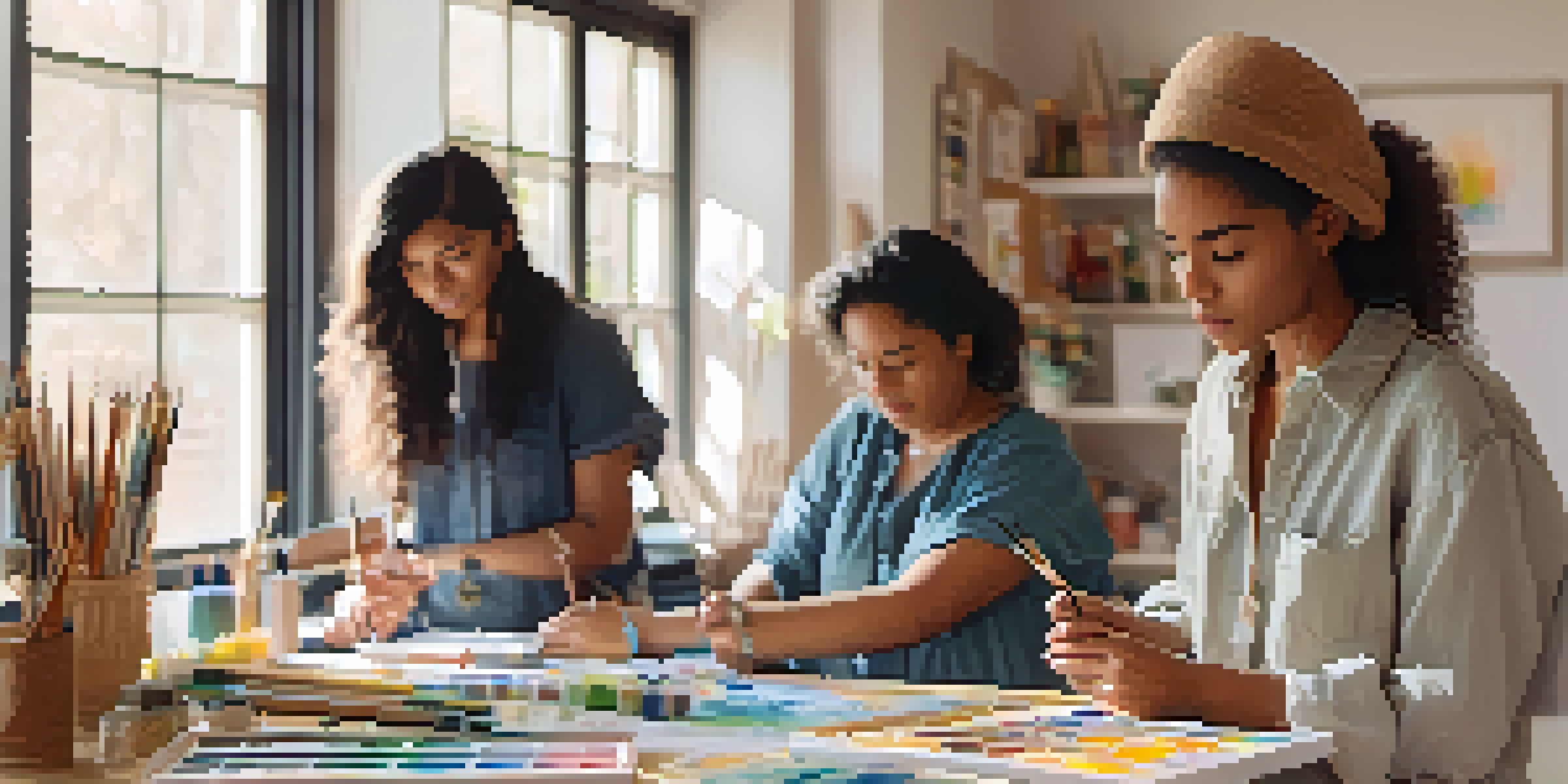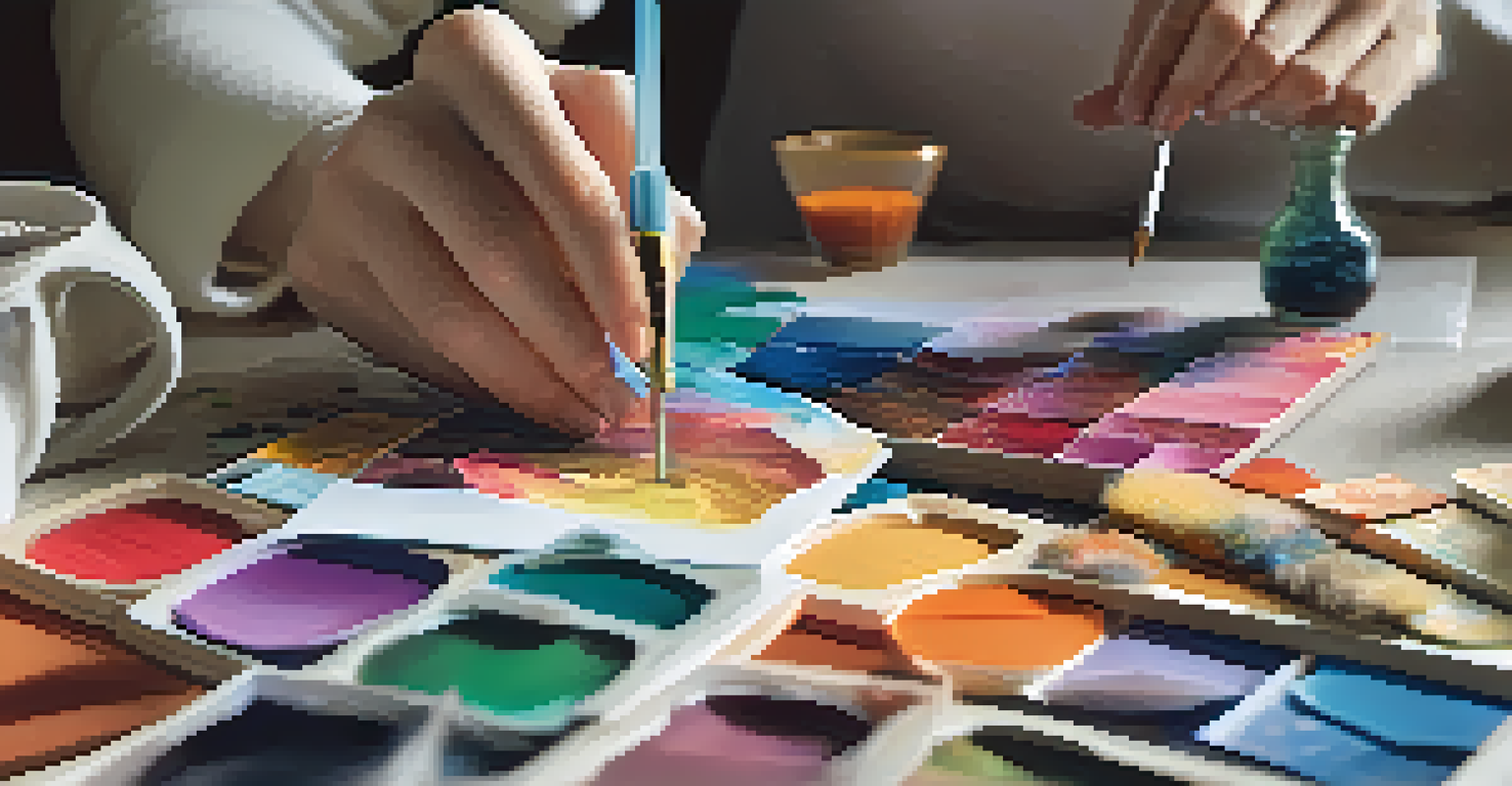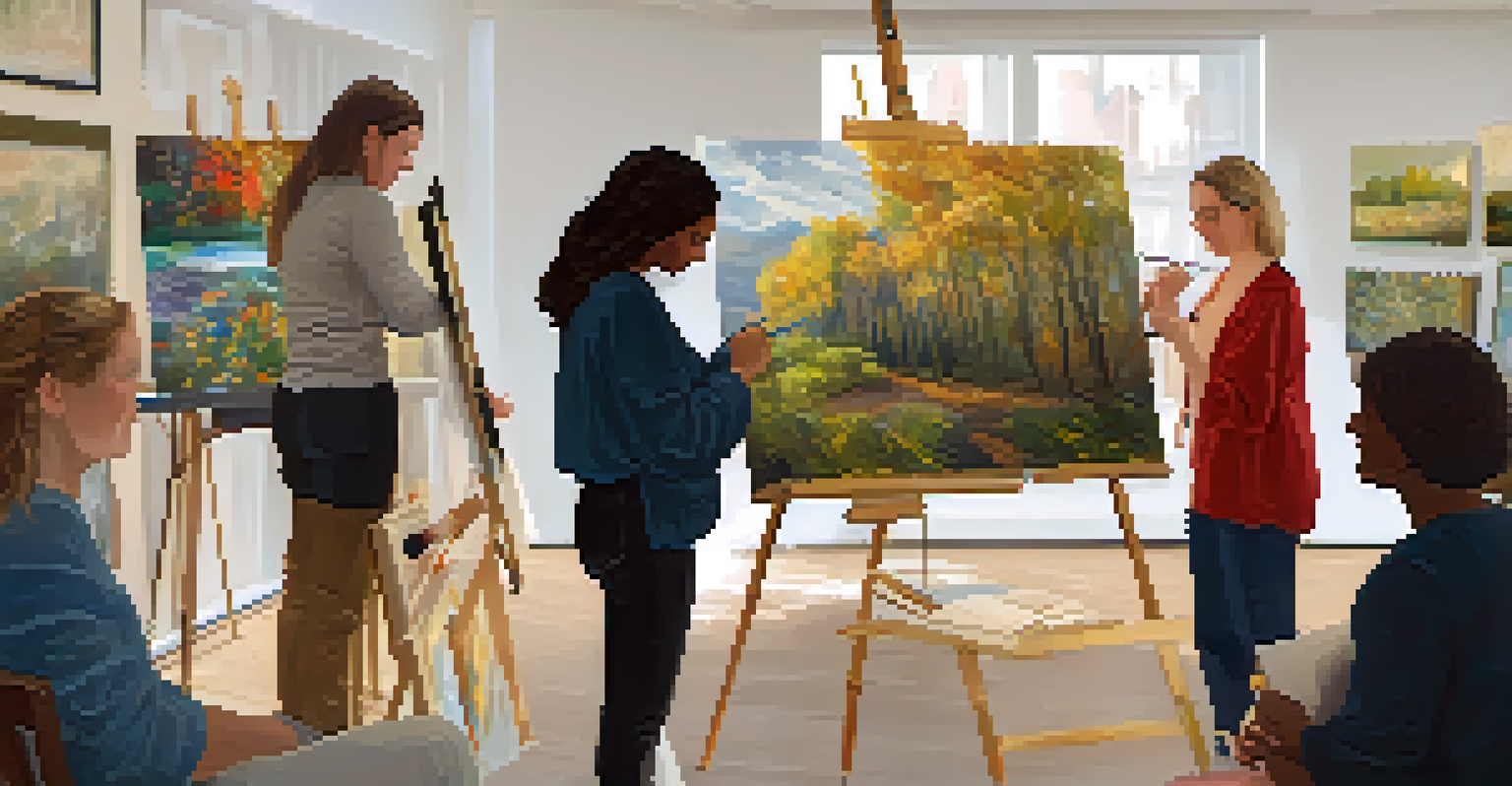Art Therapy Workshops: A Creative Outlet for Trauma Healing

Understanding Art Therapy as a Healing Tool
Art therapy is a therapeutic practice that combines creative expression with psychological support. It allows individuals to explore their feelings and experiences through various art forms, such as painting, drawing, and sculpture. This form of therapy is particularly beneficial for those who may find it difficult to express themselves verbally, making it an ideal outlet for trauma survivors.
Art is not what you see, but what you make others see.
The process of creating art can be incredibly cathartic, providing a safe space for emotions to surface. By engaging in artistic activities, participants can confront their trauma in a non-threatening way. This often leads to a deeper understanding of their feelings and experiences, fostering a sense of empowerment and control.
Moreover, art therapy workshops are typically facilitated by trained professionals who guide participants through the creative process. This supportive environment encourages individuals to share their stories and connect with others who have similar experiences. In this way, art therapy not only promotes individual healing but also fosters a sense of community.
Benefits of Art Therapy for Trauma Survivors
One of the most significant benefits of art therapy is its ability to facilitate emotional expression. Trauma often leaves individuals feeling isolated and misunderstood, but creating art can help bridge that gap. It allows them to communicate their feelings in a tangible form, making it easier to process complex emotions and experiences.

Additionally, engaging in creative activities can reduce stress and anxiety, which are common after experiencing trauma. The act of creating something beautiful can provide a sense of accomplishment and joy, even amidst overwhelming feelings. This shift in focus can be incredibly healing, allowing participants to reclaim their sense of self.
Art Therapy Aids Emotional Healing
Art therapy provides a creative outlet for trauma survivors, enabling them to express complex emotions and foster personal healing.
Lastly, art therapy encourages mindfulness—being present in the moment—which is vital for trauma recovery. By immersing themselves in the creative process, participants can momentarily escape from their distressing thoughts. This practice not only promotes relaxation but also cultivates resilience, helping individuals face challenges with a renewed perspective.
What to Expect in an Art Therapy Workshop
Art therapy workshops typically begin with a warm welcome and an introduction to the day's activities. Participants are encouraged to share their intentions and any feelings they'd like to explore through art. This initial sharing creates a sense of belonging and sets the tone for a supportive environment.
The greatest healing therapy is friendship and love.
Throughout the workshop, various art materials are provided, allowing individuals to choose how they want to express themselves. Whether it’s through painting, collage, or clay, the focus is on the process rather than the final product. Participants are encouraged to experiment and let their creativity flow without fear of judgment.
As the session progresses, the facilitator may guide discussions about the artwork created, helping participants reflect on their experiences. This dialogue can lead to profound insights and connections, reinforcing the healing process. Ultimately, participants leave the workshop feeling lighter, more connected, and empowered to continue their healing journey.
Creating a Safe Space for Expression
Safety is a cornerstone of effective art therapy workshops. Facilitators strive to create an atmosphere where participants feel comfortable sharing their thoughts and emotions. Ground rules are often established to ensure respect and confidentiality, fostering trust among group members.
In this safe space, participants can explore their trauma without fear of judgment or criticism. The focus is on personal expression, and everyone is encouraged to honor their unique journey. This acceptance is crucial for healing, as it allows individuals to confront their pain in a supportive environment.
Workshops Foster Community Support
Art therapy workshops create a safe environment where participants can share experiences and connect with others on similar healing journeys.
Furthermore, the communal aspect of workshops can significantly enhance the healing experience. Participants often find solace in knowing they’re not alone in their struggles. This shared understanding can lead to meaningful connections and friendships, which are vital for ongoing recovery.
The Role of the Art Therapist
Art therapists are trained professionals who specialize in facilitating creative expression for therapeutic purposes. They possess a deep understanding of both art and psychology, enabling them to guide participants through their emotional landscapes. Their expertise helps ensure that the workshops are both safe and effective.
During sessions, art therapists observe participants' artwork and emotional responses, offering insights that can facilitate deeper exploration. They are skilled at asking open-ended questions that encourage reflection and discussion, helping individuals uncover underlying feelings related to their trauma.
Moreover, art therapists are adept at adapting their approach to meet the needs of each participant. Whether someone needs gentle encouragement or a more structured activity, they tailor their methods accordingly. This personalized attention enhances the overall effectiveness of the therapy, making each individual feel seen and heard.
Real-Life Success Stories of Healing
Many individuals have experienced transformative healing through art therapy workshops. For instance, someone who faced severe anxiety after a traumatic event found solace in painting. Through this creative outlet, they were able to express their fears and gradually transform them into something beautiful, leading to a significant reduction in anxiety.
Another participant, who struggled with depression after a loss, discovered the power of collage-making. By assembling images and words that resonated with their feelings, they created a visual representation of their grief. This process not only helped them articulate their emotions but also provided a roadmap for their healing journey.
Art Therapists Guide the Process
Trained art therapists facilitate sessions, offering personalized support and insights to enhance participants' creative expression and emotional exploration.
These stories highlight the profound impact that art therapy can have on individuals dealing with trauma. Each person’s journey is unique, but the common thread is the ability to find hope and healing through creative expression. These workshops empower individuals to reclaim their lives and embrace the possibility of a brighter future.
How to Find Art Therapy Workshops Near You
If you’re interested in exploring art therapy workshops, the first step is to research local options. Many community centers, mental health organizations, and art studios host workshops specifically designed for trauma healing. A simple online search can yield a variety of choices tailored to different needs and preferences.
Additionally, consider reaching out to mental health professionals for recommendations. Therapists and counselors often have connections with local art therapists and can guide you toward suitable workshops. They can also help determine if art therapy is the right fit for you or your loved one.

Lastly, don’t hesitate to ask questions before committing to a workshop. Inquire about the facilitator’s qualifications, workshop structure, and whether it’s a good match for your emotional needs. Finding the right space and support can make all the difference in your healing journey.